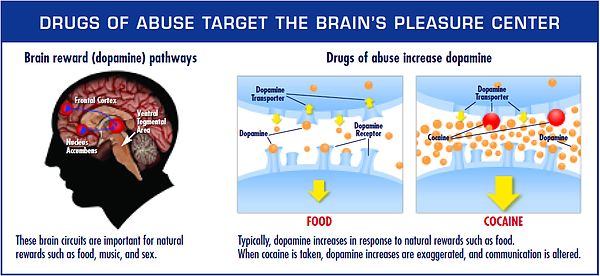Let’s start by giving a simple example of the complex magic of dopamine: we are in love, surrounded by this intoxicating sense of placidity and intensity, where emotions are always at the forefront, dopamine secretes this substance into our brain, which makes us do things to retain our partner, to seduce him and get his affection day by day.
This whole circle brings us a positive addiction, where love tends to ignite the same neural structures that we would feel if we took certain types of drugs, which are also linked to dopamine; now, if this relationship fails, if we leave our commitment to being loved, our brain will continue to generate more dopamine, because adversity is where these neurotransmitters continue to push the brain to “seek the goal. ” It is an essential element that lubricates our motivation on a daily basis; but be careful, because it promotes the same perseverance, regardless of whether the objective is positive or negative.
- In general.
- There is a very broad belief that dopamine exclusively regulates pleasure and reward.
- And that is precisely when we reach the goal when dopamine is secreted.
- But this truth is not exactly this: this neurotransmitter acts in advance; it is he who encourages us to seek the goal.
- Whether this partner.
- This work.
- In short.
- This determined reward.
Scientists also wonder why this leads us to look for sometimes negative elements, such as drug use. And there is more: even in stressful situations, we release dopamine: we are exhausted and we stay connected to work, taking care of this family member who has Alzheimer’s disease, inserted in this circle in which, despite suffering, an inner force continues to push us in search of. . . , motivating us to act in one way or another.
You have certainly found that there are people who are much more motivated than others, people who are more persevering in achieving their goals than those who have more patience, so scientists and neurobiologists have addressed this question to know, for example, what parameters motivate some people for certain aspects of their lives, such as education, work or health , to deal with pathologies such as depression or?energy, or his absence.
It turns out that these states such as depression envelop us in a very clear feeling of apathy, any effort is almost impossible, any hope of projecting something on the horizon seems diffuse and even painful, our dopamine levels are very low and we lack motivation. Lack of energy is also related to states of mental fatigue such as Parkinson’s disease, multiple sclerosis or fibromyalgia.
In counterpoint, it is curious to point out, for example, that there are people who have neurologically an excess of this neurotransmitter; are profiles accustomed to the constant search for emotions, an almost compulsive perseverance, which sometimes refers to certain addictions.
Dopamine is therefore a particular double-edged elixir to keep us alive, because being motivated in the day-to-day is an essential part of the human being, we must always have a balance of this neurotransmitter: an excess leads us to be hunters of emotions without too much fear of consequences, while a deficit, a lack of dopamines, can lock us in the terrible cell of a depression.
The world of neurology is undoubtedly as complex as it is fascinating.

